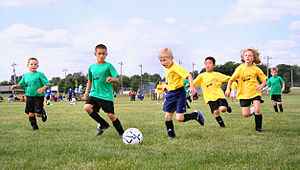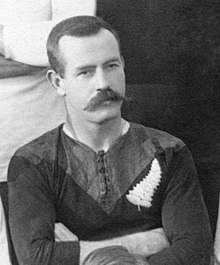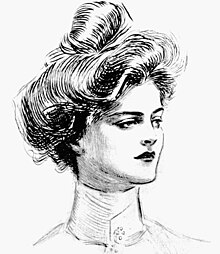The Sports Portal

Sport is a form of physical activity or game. Often competitive and organized, sports use, maintain, or improve physical ability and skills. They also provide enjoyment to participants and, in some cases, entertainment to spectators. Many sports exist, with different participant numbers, some are done by a single person with others being done by hundreds. Most sports take place either in teams or competing as individuals. Some sports allow a "tie" or "draw", in which there is no single winner; others provide tie-breaking methods to ensure one winner. A number of contests may be arranged in a tournament format, producing a champion. Many sports leagues make an annual champion by arranging games in a regular sports season, followed in some cases by playoffs.
Sport is generally recognised as system of activities based in physical athleticism or physical dexterity, with major competitions admitting only sports meeting this definition. Some organisations, such as the Council of Europe, preclude activities without any physical element from classification as sports. However, a number of competitive, but non-physical, activities claim recognition as mind sports. The International Olympic Committee who oversee the Olympic Games recognises both chess and bridge as sports. SportAccord, the international sports federation association, recognises five non-physical sports: bridge, chess, draughts, Go and xiangqi. However, they limit the number of mind games which can be admitted as sports. Sport is usually governed by a set of rules or customs, which serve to ensure fair competition. Winning can be determined by physical events such as scoring goals or crossing a line first. It can also be determined by judges who are scoring elements of the sporting performance, including objective or subjective measures such as technical performance or artistic impression. (Full article...)
Selected articles
Selected pictures
Did you know...
- ...that West Ham Stadium in London holds the record for the lowest ever attendance of a football match in The Football League, despite its capacity of 120,000?
- ...that cyclist Gerald Ciolek (pictured) became the youngest ever German National Cycling Champion, aged just 18 in 2005?
- ...that Thoroughbred racehorse Arazi's victory over Bertrando has been described as the single-most spectacular performance in Breeders' Cup history?
- ...that Welsh international footballer Joe Davies was suspended by Sheffield United for "lodging in a public house"?
- ...that Buzz Holmstrom was the first person to row alone all the way down the Colorado River from Green River, Wyoming to the Boulder Dam?
Selected quote
Selected athlete
The daughter of two former Soviet champion gymnasts, Olympic gold medalist Valeri Liukin – the first man to do a triple backflip – and World Champion rhythmic gymnast Anna Kotchneva, Nastia Liukin was born in Moscow and moved to the United States as a young child. She began gymnastics after spending time in the gym while her parents coached. Liukin is coached by her father at the World Olympic Gymnastics Academy, her family's gymnastics club in Frisco, Texas.
Liukin became a member of the U.S. junior national team when she was 12 years old and won the National all-around title at the age of 13. She was the all-around silver medalist at the 2003 Pan American Games. Since 2005, Liukin has been a key member of the U.S. senior team. She is a four-time all-around U.S. National Champion, winning twice as a junior and twice as a senior. She has been the U.S. senior National Champion on the uneven bars since 2005. Liukin has represented the United States at three World Championships, the 2003 and 2007 Pan American Games, and the 2006 and 2008 Pacific Rim Championships. In October 2011, Liukin announced that she was returning to the sport of gymnastics with the hopes of making the 2012 Olympic team. She did not make the team, and instead went to London as the athlete representative for the Federation of International Gymnasts (FIG). (Full article...)
Selected team
Rugby was introduced to France in 1872 by the British, and on New Year's Day 1906 the national side played its first Test match — against New Zealand in Paris. France played sporadically against the Home Nations until they joined them to form a Five Nations tournament (now the Six Nations Championship) in 1910. France also competed in the rugby competitions at early Summer Olympics, winning the gold medal in 1900 and two silver medals in the 1920s. The national team came of age during the 1950s and 1960s, winning their first Five Nations title outright in 1959. They won their first Grand Slam in 1968.
Since the inaugural World Cup in 1987, France have qualified for the knock-out stage of every tournament. They have reached the final three times, losing to the All Blacks in 1987 and 2011 and to Australia in 1999. France hosted the 2007 Rugby World Cup, where, as in 2003, they were beaten in the semi-finals by England.
French international matches are played at several venues across the country; the Stade de France in the Paris suburb of Saint-Denis is used for their games during the Six Nations, and they have a formidable home record at the Stade Vélodrome in Marseille where they have only lost twice, to Argentina in 2004 and to New Zealand in 2009. (Full article...)
In this month
- June 6, 1946 – The Basketball Association of America, a predecessor to the National Basketball Association, is founded
- June 14, 1900 – The only game of Basque pelota (pictured) ever played in the Olympics takes place at the 1900 Summer Olympics
- June 15, 1909 – The international governing body of cricket, the International Cricket Council, is founded
- June 20, 1904 – Fédération Internationale de l'Automobile, the federation in charge of Formula One and World Rally Championship, is founded
- June 23, 1894 – Pierre, Baron de Coubertin founds the International Olympic Committee, the organizers of the Olympic Games and Youth Olympic Games
Topics
Related portals
Categories
Things you can do
 |
Here are some tasks awaiting attention:
|
Associated Wikimedia
The following Wikimedia Foundation sister projects provide more on this subject:
-
 Commons
Commons
Free media repository -
 Wikibooks
Wikibooks
Free textbooks and manuals -
 Wikidata
Wikidata
Free knowledge base -
 Wikinews
Wikinews
Free-content news -
 Wikiquote
Wikiquote
Collection of quotations -
 Wikisource
Wikisource
Free-content library -
 Wikiversity
Wikiversity
Free learning tools -
 Wiktionary
Wiktionary
Dictionary and thesaurus
























































Recent Comments